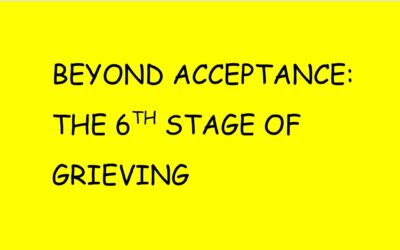Blog & Video Archives
Past Bridge Street Mental Health segment with accompanying text.
WHAT IS LOVE ?
Has there ever been a word more written about than love ?
Everyone seeks it. Most folks think they know what it is. But, ironically, couples often worry about if they are loved or if they are able to love .
Over the centuries, no one has improved on what St. Paul had to say about love in I Corinthians 13.4-7 (rsv) :
” Love is patient and kind; love is not jealous or boastful; 5 it is not arrogant or rude. Love does not insist on its own way; it is not irritable or resentful; 6 it does not rejoice at wrong, but rejoices in the right. 7 Love bears all things, believes all things, hopes all things, endures all things.”
St. Paul is clear about what love (agape) is in relation to a friend or neighbor. However, when love is understood in the context of marriage, it is a little more complicated. The intimacy of a committed adult relationship adds the elements of sexual passion and desire. Navigating and balancing concerns for one’s beloved and for oneself own can be challenging and confusing. Is It Love or Chemistry? Tips for knowing when real love comes along. | Pastoral Counseling Syracuse NY (revmichaelheath.com) To make matters even worse for couples , many of the romantic myths, found in popular literature and media, have created unrealistic expectations about relationships which distort many folks’ understanding of love. Here is an approach that can help us to sort it all out .
Stigma and Depression
There is good news for those who worry about the stigma associated with mental health.
The amount of stigma surrounding counseling is much less than it used to be. When I first started counseling in the late 70s, some men would not schedule appointments during daylight hours for fear of being seen going to a counselor’s office.
Although attitudes have improved, many people still view getting help with emotional problems as embarrassing or even shameful. In large part, this discomfort is due to certain lingering myths about mental health. Common myths created misunderstandings about psychological disorders and their treatment. Here are some common notions which are misleading and or false:
988 IS NOW OPEN !
Have you heard about 988 ? This national service begins today (July 16th 2022) !
In the wake of so many unsettling events, the need for increased mental health services has never been greater. To this end, access to the national mental health hot-line has been simplified to a new 988 number,
What ? Sex Toys ?
Sex toys ? Why would a pastoral counselor want to talk about sex toys ? Perhaps providing some context would help.
Being Sex Positive
An important theme throughout my career has been to allay the false guilt and shame engendered by religion and our sexist culture. My goal has been, and continues to be, to promote positive attitudes about sex. That is, as young folks say, to be sex-positive.
Religious and Cultural Bias
First, it needs to be understood that being sex-positive flies in the face of thousands of years of religious and cultural bias.
To be sex-positive, one must feel free to have sex just for its pleasure. While this view may seem obvious, for many, it’s not. For many, especially older folks, enjoying sex is complicated. A cloud hangs over the notion that sex can be enjoyed just for fun. Hedonistic enjoyment is suspect and guilt ridden. That’s because religion has often portrayed sex in a quasi-sacred way that confusingly combines erotic experience with the spiritual mystery of procreation.
Indeed, traditional religious beliefs have negatively influenced our culture’s attitudes toward sex. Condemning normal practices like masturbation as sinful has created unnecessary guilt and shame for older generations. masturbation | Pastoral Counseling Syracuse NY (revmichaelheath.com)
Pernicious Myths Ignore Single People and Older Adults
The indisputable fact is that conservative Christianity is and always has been uncomfortable with sex. (See St. Augustine) It sees it primarily as the means for procreation. (See Thomas Acquinas) In doing so it refuses to acknowledge the legitimacy of sex simply for pleasure or outside of the bonds of marriage.
As a result, the church’s outlook toward sex ignores and fails all single folks and seniors who are beyond child-bearing years. Further, through its silence, the church implicitly promotes false notions about sex and aging.
For example: we are led to believe that sexual interest wanes with age and becomes less and less important the older you get. In fact, barring serious medical limitations, interest and enjoyment of sex is a lifelong entitlement which actually can increase over the years.
That said, aging does change certain things about the way folks can have sex. The loss of flexibility or increased discomfort may require that some things be done differently. Unfortunately, this general discomfort with sex prevents many couples from even talking about sex much less exploring new, more adaptive and exciting sexual possibilities.
What about Sex Toys ?
All of this brings us to sex toys and a recent article in Slate online.
Marital Mindfulness
You may know that the term mindfulness is very popular among psychologists, therapists and the self-help crowd. However, you may not have realized that marital mindfulness is important for improving initmate relations.
Certainly, the institutions of marriage and family have undergone dramatic changes over the past decades. And it is true that the divorce rate has consistently dropped as the average age of those marry has risen.
Indeed, being older and more mature helps couples to negotiate the challenges of a partnership. Millennials Are Causing the U.S. Divorce Rate to Plummet – Bloomberg That said, over the past 50 years, other cultural shifts have made sustaining marriage more difficult, now than in the past.
Being Present
I was recently in a seminar on polyvagal theory (Being Polyvagal: The Polyvagal Theory Explained – Windhorse Integrative Mental Health – Windhorse Integrative Mental Health (windhorseimh.org) and trauma when I was struck by how much the science which informs our understanding of psychological disorders has changed over the years.
As I look back to when I first began training in 1978, it is obvious that recent advances in neuro-biology have been extraordinary. In short, we have gone from thinking of emotional problems as originating in the brain to understanding that, in most cases, environmental trauma is the culprit. Indeed trauma damages the brain, specifically the vagal nervous system and hippocampus.
Nonetheless, scientific progress and innovative therapeutic techniques notwithstanding, the basic goal of psychotherapy has remained the same: To help people live more rationally in the present. Becoming Reasonable: Updating our Notions of Mental Health and Counseling. | Pastoral Counseling Syracuse NY (revmichaelheath.com)
Today, while the expressions of ” being present “or “living in the present” are widely used in the media and promoted by mental health professionals, How to Live in the Moment: 35+ Tools to Be More Present (positivepsychology.com) , what it actually means to live in the present is sometimes confusing.
Basically, being present means being able to be attentive to and to be aware of our own immediate experience. When our focus is on the present, we are then able to fully engage with others. While it sounds simple, many people have a hard time being present. With that in mind, there are two obstacles which prevent us from being emotionally present.
BAD IDEAS ABOUT GOOD SEX
It’s no surprise that most people want to have “good sex”. Unfortunately, many people report that they are not having it.
Over the years, I have found that, even among highly educated folks, much is lacking with respect to their understanding of sex and intimacy. 10 Myths About Sex That Many Adults Still Believe | HuffPost Life
Indeed, our culture is saturated with misinformation and myths which have created unrealistic notions and expectations of what good sex is or what is needed to have it. Intimate Communication: Tips for Talking to your Partner about Sex | Pastoral Counseling Syracuse NY (revmichaelheath.com) Indeed, unrealistic expectations about sex are the biggest obstacle to erotic bliss.
Therefore, let’s look at some of the bad ideas about good sex and debunk them with facts and accurate information:
Pastoral Counseling ?
Recently I was asked to do an interview to explain what pastoral counseling is. I was glad to talk to the reporter because, over the years, I have found that many people are confused by the term.
Of course, folks know what the words pastoral and counseling mean. The problem is that, when taken together to designate a therapeutic approach, the meaning isn’t clear.
For example, ministers, rabbis and imam’s provide religious counsel for their followers. Also, non-psychologically based efforts such Christian or Bible-based counseling offer services for a fee.
Perhaps the lack of understanding stems from the fact that, when compared in size with other counseling professions like social work or psychologists, the number of pastoral counselors is relatively small. Nonetheless, I believe that pastoral counseling brings an important perspective to psychotherapy which is particularly relevant in today’s over-stressed world.
Therefore, to really understand what pastoral counseling is, two myths about it must be debunked, i.e. that it is directive/judgmental and that it is only for “religious” clients. Knowing what pastoral counseling is not , we can better appreciate what it is. Specifically, pastoral counseling has two unique and distinguishing characteristics:1) its integrative world view and 2) its training requirements.
The Slap: Why we “lose it”
Actor Will Smith stunned America when he slapped comedian Chris Rock during the Oscars and both the news and social media went wild. Reactions to the incident ran the entire gamut from praise to disgust. Some saw it as a chivalrous act. Others viewed it as a disgusting example of toxic masculinity. Still others felt is was evidence of mental condition. CNN+ | Interview Club | Interview – Why the Oscars Altercation Between Will Smith and Chris Rock Was Such a Trigger
As a therapist I help people learn to control their dysfunctional impulses, It would be helpful to learn from this unfortunate incident and clear up some fundamental misunderstandings about anger. This event can be an opportunity to shed light on the serious but misunderstood societal problem of poor impulse control.
With respect to Will Smith, there are no ifs, ands or buts about it. What he did was wrong and unacceptable on so many levels. In addition, the audience’s calm reaction to it all demonstrates that the problem is much greater than the act of an individual. The whole situation is a glaring and a sad commentary about how callous and insensitive our culture has become to aggressive behavior.
To be clear, my concern, here, is neither to judge nor defend the man but to explain the psychology of impulsive behavior. Indeed, it must be acknowledged that. under the right circumstances, any one of us is capable of a similar reaction. Rather than seeing this as Will Smith’s problem, it is more helpful to view it as a human problem. That is, I want to explain how impulse control issues are rooted in the fundamental structure of our brain. Here are a couple of basic facts which debunk some common myths about anger:
On Feeling Overwhelmed
Given the Ukranian situation, skyrocketing gas prices and COVID, many folks are feeling overwhelmed. If you are one of those folks, it is important to understand that there is nothing is wrong with you for feeling over-stressed.
Of course, feeling over-stressed is nothing new. Indeed, human beings have always had emotional limits. Fortunately, there are many resources available online to help you cope.
To help you sort through them all, here is a summary of what you need to know about feeling overwhelmed and what to do about it:
On Leisure & Mental Health
I try to practice what I preach. And so, as I am currently on vacation, today’s segment is on the importance of leisure for mental health. Indeed, leisure activity does not command the respect that it deserves.
Unfortunately, for too many people, leisure’s health benefits are neither appreciated nor understood. Too many think of vacationing time as an unnecessary luxury or, worse, as wasting time. Think leisure is a waste? That may not bode well for your mental health — ScienceDaily
Today I want to debunk some of the myths concerning leisure and explain why leisure activity, is so essential for brain health and emotional well-being.
On Romantic Love
Valentine’s Day is a celebration of love and romance. Unfortunately, many of the popular beliefs confuse romantic love with true and enduring love.
Typically, romantic notions of true love mistake the magical feeling of infatuation with sustainable love. This conflation comes from classic literature’s portrayal of idealized courtly love. You know, the intoxicating experience of star-crossed lovers such as Romeo and Juliet. Sadly, these stories distort our understanding of what real love is. Worse, they have created unrealistic expectations for those who marry.
Today we are going to debunk at some common myths about love and, instead, provide some helpful suggestions to keep love alive.
Vulnerability and Romance
With Valentiane’s Day fast approaching , people’s minds turn to love and romance. As marriage counselor, I am struck by number of relationships which suffer from a romantic deficit. Ironically, despite modern culture’s emphasis on sex, physical intimacy is a serious problem for many couples. While there are many how-to books and blogs created to help folks increase romance5 Ways to Rekindle Romance in Your Marriage and spice-up a flagging sex-life A Valentine’s Day Primer for Couples who want more Romance in their Marriage . | Pastoral Counseling Syracuse NY (revmichaelheath.com) , an important but much overlooked area of concern is a couple’s ability to be vulnerable with one another.
Vulnerability is a physical or emotional state of being exposed. Communicating your vulnerability means to talk about and admit your fears, weaknesses and confusion. Intimacy means to know the other person deeply. One can’t really know the other person without knowing their vulnerabilities. Thus, communicating one’s vulnerability is an essential part of an intimate relationship. In order for a person to expose their vulnerable issues requires that both persons feel safe from attack and trust that each is being honest about their feelings. Letting your partner know when you are feeling weak or scared or confused, signals them that you are not threatening and that you’re being honest.
Today, let’s look at: 1) Some of the reasons why people have trouble being vulnerable with one another and 2) Steps that you can take to make sharing anxious feelings easier.
Grieving’s 6th Step
I’ve noticed that, as we start the new year in the midst of COVID, many folks are struggling with loss and grieving. For some, the loss involves the death of family members or loved ones. For others, it has meant the loss of financial security. And, for others, COVID has meant the frustrations encountered in the loss of normalcy.
For many, the words grief and grieving are synonymous with the name Kubler-Ross and the five stages of grief. Five Stages Of Grief – Understanding the Kubler-Ross Model (psycom.net) What you might not be aware of are the important developments in grief research which have taken place over the past 40 years since Kluber-Ross’s publication. This research has significantly advanced our understanding of the grieving process and revealed that there is yet another stage of the recovery process.
One important discovery explains how the grieving process ends. Rather than finishing with the 5th stage of acceptance, research has shown that folks who have reported successfully recovering from serious loss have reported finding a new purpose in their life which has given rise to hope and joy about the future.
PLAN B for Lower Stress
As we begin 2022, many turn their thoughts making new year’s resolutions. Helpful tips for making resolutions can be found everywhere, in special news reports, internet blogs and in the self-help section of bookstores. 7 Proven Steps to Set Achievable Resolutions – Life Leaders Institute Indeed, over the years, I have also offered advice to help folks stick to their resolutions. Getting Real about New Year’s Resolutions: Some things to think about before making one. | Pastoral Counseling Syracuse NY (revmichaelheath.com) Today, however, due to COVID and other stressors, which have made 2021 so difficult and anxiety filled, I want to talk about a stress management/anxiety-lowering approach called Plan B.
Feeling anxious is sometimes unavoidable. There is some stress which can’t be avoided because some aspects of life are out of our control, However, even when things happen which are out of your control, it is possible, with some practice , to reduce our level of anxiety. Expectations, for example, are something that we can control and adjust with a little reflection. When traveling unexpected problems like cancelled flights or rooms not being ready can cause emotional distress, if one, unrealistically, expects that things will go perfectly without a hitch. Understanding how our brain reacts to surprises and having a Plan “B” to turn to when frustrations occur can dramatically lower our experience of anxiety. Here’s how it works:
2017
- May 31, 2017
Understanding the Parallels between Biblical and Psychological Wisdom - May 14, 2017
Aprreciating the Emotinal Complexity of Mother’s Day - May 02, 2017
Redefining Mental Health: The Struggle to be Reasonable - April 16, 2017
Easter and the Therapeutic Process: The Rest of the Story - April 02, 2017
Judgers and Perceivers - March 19, 2017
Communication Tip # 6 : Understanding the Differences between Thinkers and Feelers - March 04, 2017
Communication tip #5 : Understanding iNtuitive and Sensate Personality Differences - February 21, 2017
Communication Tip # 4: Understanding the differences between Extroverts and Introverts - February 03, 2017
Aristophanes and the Myth of Androgyne: The Soulful Meanings of Love - January 15, 2017
The Myth of “Holding on” to the Past : Neuro-science and the Grieving Process - January 02, 2017
Being Reasonable about New Year’s Resolutions:
2016
- December 17, 2016
New Research offers Hope for Resistant Depression - December 04, 2016
Bursting Some Common Myths About Pastoral Counseling - November 23, 2016
Thanksgiving: A Time for Regaining Perspective and ,for some, Conflict - November 11, 2016
Dealing With Political Grief - November 02, 2016
Explaining the Facebook Study: Turns out Cyber Friends Are Important Too - October 19, 2016
Beyond Romantic Myths: 9 Tips for Getting real about what it takes to have a great marriage - October 03, 2016
Why Mental Health Check-Ups Are a Good Idea - September 15, 2016
Appreciating the Health Benefits of Good Friends - August 31, 2016
When it comes to sex, men are Windows and women are DOS - August 14, 2016
Good News for People Who Worry about Memory Loss - August 05, 2016
The Psychology of Blaming: Learning to See the Fear Behind the Anger - July 07, 2016
Psychological Manipulation: What it is and How to deal with it. - June 21, 2016
Coping with the Absurd and the Horrifying Stories in the News - June 05, 2016
Do you have to be “crazy” to see a therapist ? - May 18, 2016
Sex in Marriage : Are You having Enough ? - May 07, 2016
Updating the Image of Psychotherapist: A Life-Tour Guide - April 29, 2016
Updating the Image of Psychotherapist: From Orthodontist to Helicopter Pilot When people think abo - April 12, 2016
Spring Cleaning for your Marriage - March 28, 2016
Some thoughts about the importance of Hope - March 16, 2016
I-Statements 101: The Keys to Expressing Anger Constructively - March 02, 2016
Understanding Leisure as an Essential Part of Self-Care - February 12, 2016
Romantic Myth # 3: Love is a Special Feeling - February 09, 2016
Romantic Myth #2 : Love Never Ends - February 06, 2016
Bursting Popular Myths about Love - January 25, 2016
How to Make a Worry List: The Importance of Emotional Triage - January 12, 2016
Want More Intimacy In Your Relationship? Try Sharing Your Dreams - January 02, 2016
The Secret to Keeping New Year’s Resolutions
2015
-
- December 21, 2015
Light and the Meaning of the Holidays - December 07, 2015
Dealing with Increased Terror-Related Anxiety - November 20, 2015
Dealing with the stress of Holiday Gatherings - November 10, 2015
Are You An IMpatient Person ? - October 27, 2015
How Exchanging Marital Report Cards Can Improve Your Relationship - October 07, 2015
October is Domestic Violence Awareness Month - September 21, 2015
Understanding the new “Female” Viagra - September 12, 2015
Talking about end of life issues and facing our fears of dying - August 24, 2015
Bursting the Forgiveness Myth - August 13, 2015
Understainding our False Guilt about Sex - August 02, 2015
Do you know your “Organ of Distress”: Recognizing when an emotional fire is about to break out. - July 20, 2015
How to Build Trust After an Affair . - July 05, 2015
The “Emotinal Cigarette” – A breathing exercise to help you relax. - May 18, 2016
Sex in Marriage : Are You having Enough ? - June 24, 2015
Good News for Work Outs - June 15, 2015
Sneaky Depression Triggers - June 03, 2015
Human Sexuality Is More Complicated Than You Think. - May 28, 2015
Mental Health Myth # 4: Talking to friends is the same thing as going to therapy. - May 28, 2015
Myth # 3: Psychological disorders are very rare - May 06, 2015
The Myth of Mental Illness: 2.0 - May 03, 2015
Did you know that May in Mental Health Awareness Month ? - April 25, 2015
Bruce Jenner Interview Outshines Olympic Gold - April 10, 2015
White House Supports Ban on “Conversion Therapy” for Gay and Transgender Youth - April 03, 2015
Sexism in FDA: Continues a Double Standard, Hurts Women - March 16, 2015
Taking Your Emotinal Pulse - March 05, 2015
Your Emotional Docimeter
- December 21, 2015
Rekindling Passion: Part Two – The Secret to Re-igniting the Fames of Desire
-
- January 30, 2015
Rekindling Passion: Part One – The Truth about Aphrodisiacs - January 14, 2015
Emotional Triage and the Worry List - January 06, 2015
A Check-List Before Making Your New Year’s Resolutions
- January 30, 2015
2014
- December 10, 2014
Reducing Stress Around the Holidays - November 23, 2014
Feeling Grattitude When Times Are Hard - November 07, 2014
Reducing Stress for Seniors : Tips for Dealing with Everyday Worries and Finding More Joy in LIfe - October 27, 2014
Five Things You Didn’t Know About Halloween - October 14, 2014
Having Good Sex is a Sign of a Healthy Marriage - September 30, 2014
New “Consent” App Asks Partners Important Questions to Think About Before Having Sex - September 09, 2014
Lame Excuses – Why we make them. How to stop. - August 13, 2014
Robin Williams’ Severe Depression: Keeping Things in Perspective - July 16, 2014
The Quiet Crisis: Adult Children Caring for Aging Parents - June 18, 2014
Clearing up the confusion about Transgendered People and Gender Non-Conformity: Getting the medical - May 21, 2014
Getting Rid of Grudges: Just let it go – or maybe not. - April 16, 2014
Finding Romance among the Diapers - March 26, 2014
Bursting the “Hard Work” Myth”: The Importance of Leisure - February 12, 2014
Wedding Insurance and Pre-Marital Counseling :Bursting the Obligation Myth. - January 15, 2014
Submissiveness and Leadershipin the Modern Marriage
2013
- December 23, 2013
Reducing Stress Around the Holidays – A Pastoral Counseling Approach - December 18, 2013
Balancing Career and Family - November 19, 2013
Dating Younger: How the internet and social media have expanded dating choices for single people - October 30, 2013
Five Things You Didn’t Know About Halloween - October 09, 2013
Are You Bing Bullied in the Workplace ? - September 04, 2013
Are You Addicted to the Internet ? - August 14, 2013
Post-Partum Depression: What every expectant or new mom needs to know. - July 31, 2013
Secrets of Assertiveness 101: - July 08, 2013
Sex Education for Adults: Cheating - June 17, 2013
PTSD Awareness - June 05, 2013
Leaving the Nest – Vaulable Tips for Parents and Young Adults - May 22, 2013
Five Mental Health Myths - May 08, 2013
A Spring Cleaning for Your Marriage: Personal Appearance - April 17, 2013
Dealing with the Boston Marathon Bombings? - March 28, 2013
“Breaking up” with your Hairdresser - March 13, 2013
Is This ( am I ) Normal - February 27, 2013
Romantic Second Chances: When should I give him (her) another chance? - February 13, 2013
Caring and Consideration: The Keys to Lasting Passion - January 17, 2013
Emotional First Aid: Tips for Responding to Everyday Psychological Distress - January 02, 2013
New Year’s Resolutions: Why We Brake Them, How To Keep The,
2012
-
- December 19, 2012
Take Controle of your Holiday Stress - December 03, 2012
Life Smarts and The Intelligence Myths
- December 19, 2012
- October 30, 2012
Here’s the Skinny on Scary: The Facts about Phobias - October 19, 2012
Oh, I Remember it well … or maybe not ! - September 26, 2012
The Importance of Remembering - September 05, 2012
Going Back to School Chaos: Help for Parents - August 17, 2012
Money Conflicts and Marriage: Tips for Keeping the Peace - July 30, 2012
Using Your Imagination to Overcome Procrastination - July 23, 2012
UPreventing Tragic Story Overload in the Wake of the Colorado Massacre - July 09, 2012
Redefining Normal: An Inclusive Way of Understanding Mental Health - June 27, 2012
PTSD National Awareness Day : Myths and Facts - June 20, 2012
Reducing Stress When You Travel - May 30, 2012
How to Cope with an Unreasonable Boss - May 16, 2012
How to Disagree without Being Disagreeable - May 14, 2012
Myths and facts about happiness: What really makes us happy ? - April 25, 2012
Body Language: Our Emotional Traffic Lights - April 04, 2012
The Importance of Work Place Colleagues - March 14, 2012
Stress and Relationships - February 29, 2012
Is It Love or Chemistry ? Tips for knowing when real love comes along. - February 13, 2012
Can Love and Romance Last ? Yes, But It Takes Work ! - January 18, 2012
Why am I so Impatient ? Tips for Dealing with the New Technologies that are Driving us Crazy./a> - January 04, 2012
The Psychology of Successful Weight Loss — Tips for Avoiding the Emotional Pitfalls which Sabotage
2011
- December 23, 2011
Are You Emotionally Out of Shape ? Here’s a Check List to Help You Become Emotinally Fit - December 07, 2011
Don’t be So Defensive – Tips for Dealing with Criticism Gracefully - November 23, 2011
Feeling Gratitude in the Wake of Hard Times - November 08, 2011
The Truth about Secrets and Itimacy in Marriage - October 26, 2011
How to Have A Constructive Argument - October 12, 2011
The Psychological Cigarette – Understanding the Breathing/Relaxation Connection - October 03, 2011
Am I OCD or just really particular ? - September 12, 2011
The 411 about Marriage Counseling – What it Can and Can’t do. - August 09, 2011
Psychology and Smart Phones: The Risks of Overusing your PocketPC - August 01, 2011
The Art of Compromise: Keys to Successful Marital Negotiation - July 20, 2011
Planning your wedding ? Don’t forget your relationship: the Essentials - July 05, 2011
Creating 2nd Chances: Tips for Turning a Bad Situation into a Good One - June 08, 2011
The Seven Year Itch: Why it Happens and How to Prevent i - May 25, 2011
Fair Fighting – Some Ground Rules for Resolving Marital Conflicts - May 11, 2011
Unnecessary Criticism: Why we do it ; How to stop it - April 27, 2011
Money Conflicts in Marriage: It’s not just about the Money - April 13, 2011
Spring Cleaning Your Marriage: Personal Appearance - April 01, 2011
Understanding and Coping with Jealousy in Marriage - March 16, 2011
Therapeutic Self-Talk: What it is, Why it’s Helpful and How it Works . - March 09, 2011
Breaking the Ice After an Argument: Understanding the Psychology of Post Argument Silences - February 23, 2011
Guilt-Tripping and Emotional Manipulation No one likes to be guilt-tripped, yet it happens all - February 14, 2011
The Secret of Keeping Romance Alive: Tips for Busy Couples - January 26, 2011
Sibling Relationships 101:Tips for Updating your Sib Status - January 19, 2011
How Words Can Help Us to Heal The tragedies of the Tucson shooting has created many emotional wounds - January 14, 2011
A Myth About Mourning Although most of the country was moved by the ceremony held for the victims - January 06, 2011
Boosting Your Brain: Sorting out the Facts from the Myths
2010
- December 29, 2010
End of Year Marital Review and Marital Resolutions for the New Year - July 19, 2010
Pouting - June 28, 2010
Are You Just Discouraged or Really Depressed ? How to Tell the Difference - May 25, 2010
Emotional False Alarms - May 06, 2010
The Science of Making Up - April 12, 2010
Spring Cleaning for your Marriage
2009
- December 07, 2009
Marital Make-Overs for the Holidays: Tips for Fallling in Love All over Again - November 02, 2009
Marriage Is Hard - October 05, 2009
Keeping Your Cool - September 10, 2009
Nagging: Why we do It , How to Stop - July 23, 2009
Understanding Affairs - June 30, 2009
Interviewing Successfully - June 01, 2009
Helping our Parents with Difficult Decisions - March 09, 2009
The Good News About Stress - February 19, 2009
Talking to Teens about Sex
















